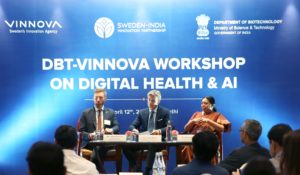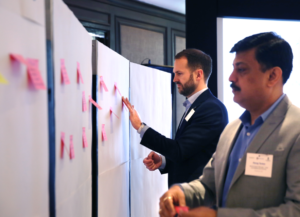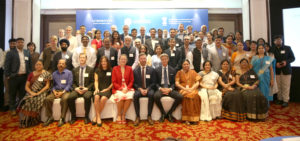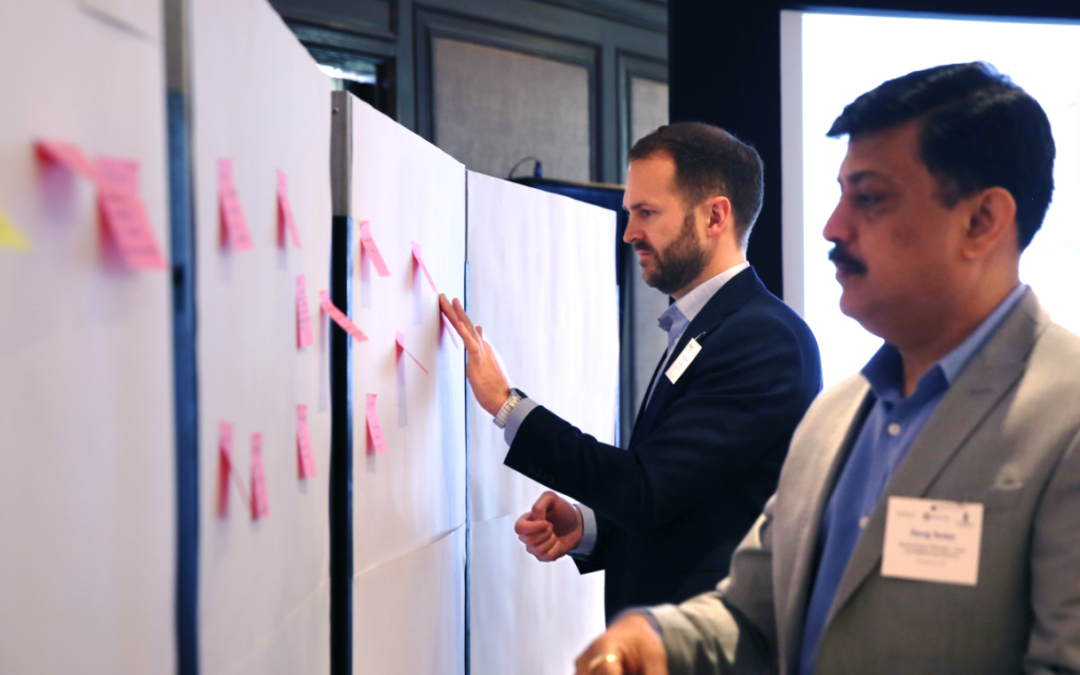
Artificial Intelligence (AI) is the reigning paradigm of our era. In Vertiver’s design, strategy and research work across sustainable agriculture, health and forests, we’re experiencing first-hand how AI is fundamentally transforming the way farmers, doctors and forest officials work on the ground. PREDICTION is key and connecting it to personalized treatment can improve outcomes in all sectors. Where weather and pest advisory can link to better interventions based on soil quality etc., early detection and diagnosis in healthcare saves and improves lives.
In facilitating some of these dialogues, we’ve seen all experts ask for the same things across geographies and sectors – accurate and good quality data, interoperability of data across systems, organization-wide data repositories, and reliable analysis. Data security, sovereignty, accountability, and privacy are issues that while crucial are not necessarily at the top of the list. Though as the scale of AI applications increase, privacy will become a foremost issue. For now, researchers seem to be content with making different sources of data talk to each other!
This past month, Vertiver facilitated an expert discussion on AI and Digital Health under the Indo-Swedish bi-lateral initiative for DBT and VINNOVA. Using design thinking- based processes we helped set the agenda for the discussion and steered the dialogue towards key expert recommendations for use of AI in healthcare in India. Vertiver’s key goal as facilitation and management partners to the event was to ensure to-the-point discussion and reflect back inputs from all members to the group in real time. Armed with key AI and Healthcare themes and categories prior to the event, we were able to guide the discussion and engage experts who included doctors, researchers, policymakers, industry and even patients, in a vibrant dialogue on how India and Sweden can leverage each other’s strengths in AI, Statistics and Big Data to improve healthcare in both countries.

Having facilitated various expert discussions between India and International experts, we’d love to share some of our observations with you:
- Participants in an expert workshop often know as much as panelists
- They warm up gradually to the group (serving a good cup of tea and coffee gets them friendlier!)
- They do NOT want to be hand-held (best to ask them to give inputs and then leave them alone!)
- People are very generous with their knowledge and need the slightest nudge to share their expertise
- People love to reflect on the group’s collective ideas, ideally captured creatively on boards in the same room as the event and
- Serving a precise point-by-point summary at the end of each discussion can really help bring consensus or clear out any confusion!
We were excited to see how all sides in the room collaborated and proactively shared ideas on how the implementation of AI applications can improve healthcare using cross-cultural expertise in India and Sweden. We distilled these ideas into more than 50 action recommendations that would go towards a joint call for proposal.
Good facilitation is all about harnessing and channeling curiosity and our team of designers, filmmakers, writers, strategists, and calligraphers captured, synthesized and reflected ideas that we believe will inspire researchers to take on the massive challenges of healthcare of our times.
We will stay atop issues of data privacy and AI as the field moves forward!



Recent Comments